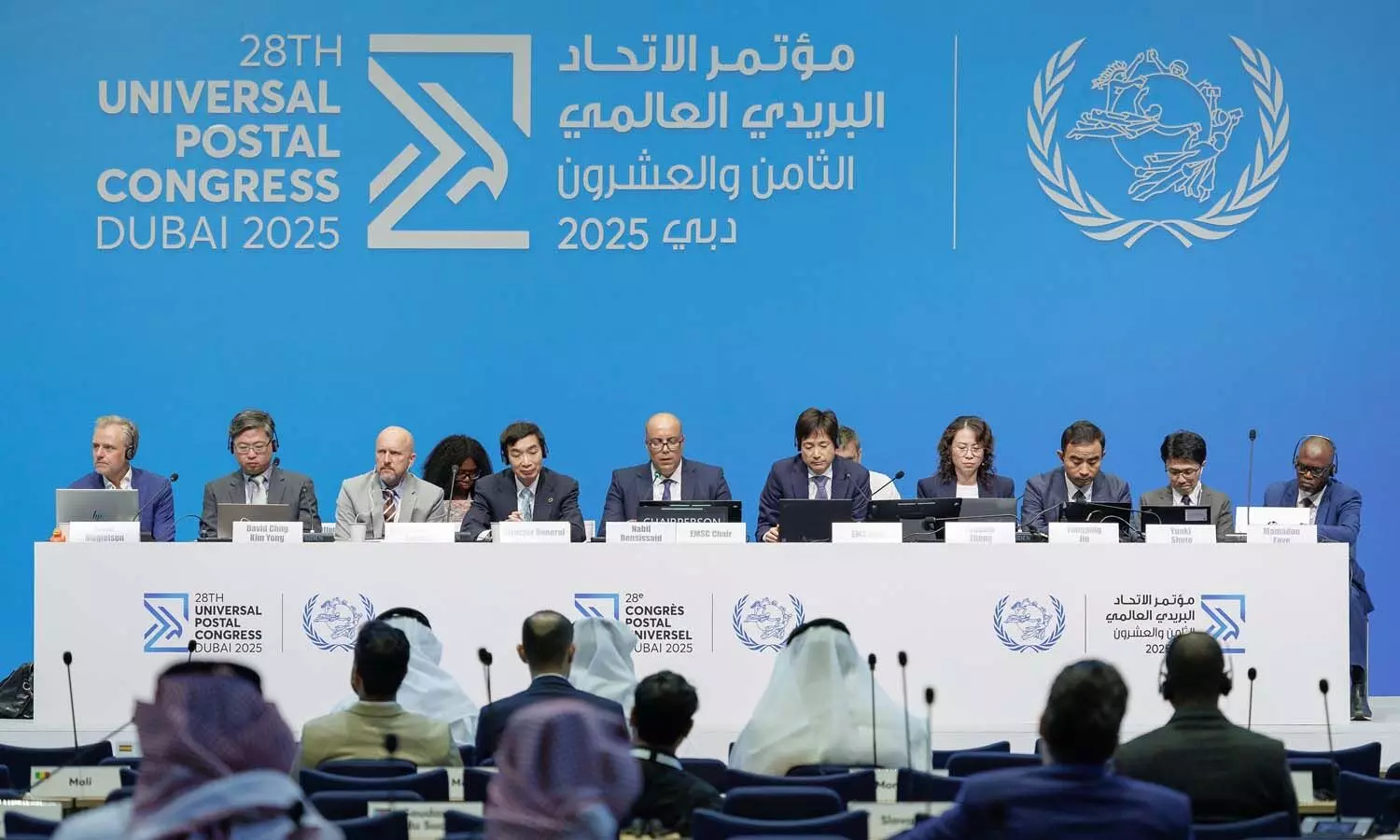
UPU targets US postal volume collapse as Dubai summit begins
UPU unveils urgent fix for US-bound mail collapse as 28th Dubai Congress pushes cross-border e-commerce reforms.

The Universal Postal Union (UPU), the United Nations’ specialised agency for postal services, has rushed out a technical fix to help postal operators resume deliveries to the United States after traffic collapsed by more than 80% when Washington suspended the duty-free de minimis exemption for low-value imports.
Postal flows to the U.S. came to a near standstill after the new rules, effective 29 August, shifted responsibility for collecting customs duties onto carriers or U.S. Customs and Border Protection (CBP)–approved qualified parties. Airlines signalled they were unwilling to shoulder the burden, and most postal operators had yet to establish connections with approved parties, triggering major operational disruptions.
According to UPU data exchanged across its electronic network, traffic from member countries to the U.S. on 29 August was down 81% compared with the previous Friday. At least 88 postal operators confirmed they had suspended some or all services to the U.S. until a workable solution was in place.
In response, the UPU fast-tracked a Delivered Duty Paid (DDP) solution. As of 5 September, postal operators can now access a landed-cost calculator through an application programming interface (API), which can be integrated into retail and counter systems. This tool enables duties to be calculated and collected at the point of origin, allowing items to clear smoothly upon arrival in the U.S. The solution will soon be integrated into the UPU’s Customs Declaration System (CDS), enabling a gradual rollout across 176 postal operators.
“Ensuring the free circulation of postal items is core to our mission,” said UPU Director General Masahiko Metoki. “We are working to uphold that responsibility with the rapid development of a new technical solution that will help get mail moving to the United States again.”
The crisis has sharpened focus on the 28th Universal Postal Congress, which opened today in Dubai under the patronage of His Highness Sheikh Mohammed bin Rashid Al Maktoum, Vice President and Prime Minister of the UAE and Ruler of Dubai. The gathering of 192 member countries is set to define the UPU’s 2026–2029 strategy and shape the future of global postal services.
At the heart of this year’s Congress are three integrated modernization plans designed to align postal services with the realities of e-commerce,
Integrated Product Plan (IPP) reshapes the UPU’s product portfolio around content-based classification, digital integration, and customer-centric features such as visibility, delivery options, duty-paid services, and sustainability practices.
Integrated Remuneration Plan (IRP) establishes a fairer and more transparent system of compensation between operators by shifting towards item-based, content-specific, and self-declared rates, ensuring affordability while reflecting real handling costs.
Integrated Quality of Service Plan (IQP) introduces harmonized global service standards, expanded tracking events, performance-linked remuneration, and a unified quality management methodology to strengthen reliability and competitiveness.
Together, the IPP, IRP, and IQP create a unified roadmap to make postal services more resilient, affordable, and responsive in an era defined by digital commerce.
In his opening remarks, Director General Metoki framed the Congress as a test of solidarity: “This Congress is our opportunity to ensure that every link in our network is strong… to build common solutions regardless of our region, level of development or business model.”
H.E. Badr Al-Olama, Honorary Chair of the Congress, added: “The 28th Universal Postal Congress is an opportunity to set the tone for the next era of universal postal services, ensuring the sector remains relevant and responsive to twenty-first century realities.”
Proceedings began with the UPU Global Leaders Summit, which brought together ministers, regulators, and CEOs from across the sector to debate the postal network’s role in the digital economy. Member states will now consider proposals to modernise products, remuneration, and quality of service — reforms that echo the urgency underscored by the U.S. disruption.
A special session on 10 September will brief delegates on the latest developments in U.S.-bound mail and explore further solutions. The Congress runs until 19 September, when members will adopt final decisions and sign Acts that will define the postal landscape for the next four years.

